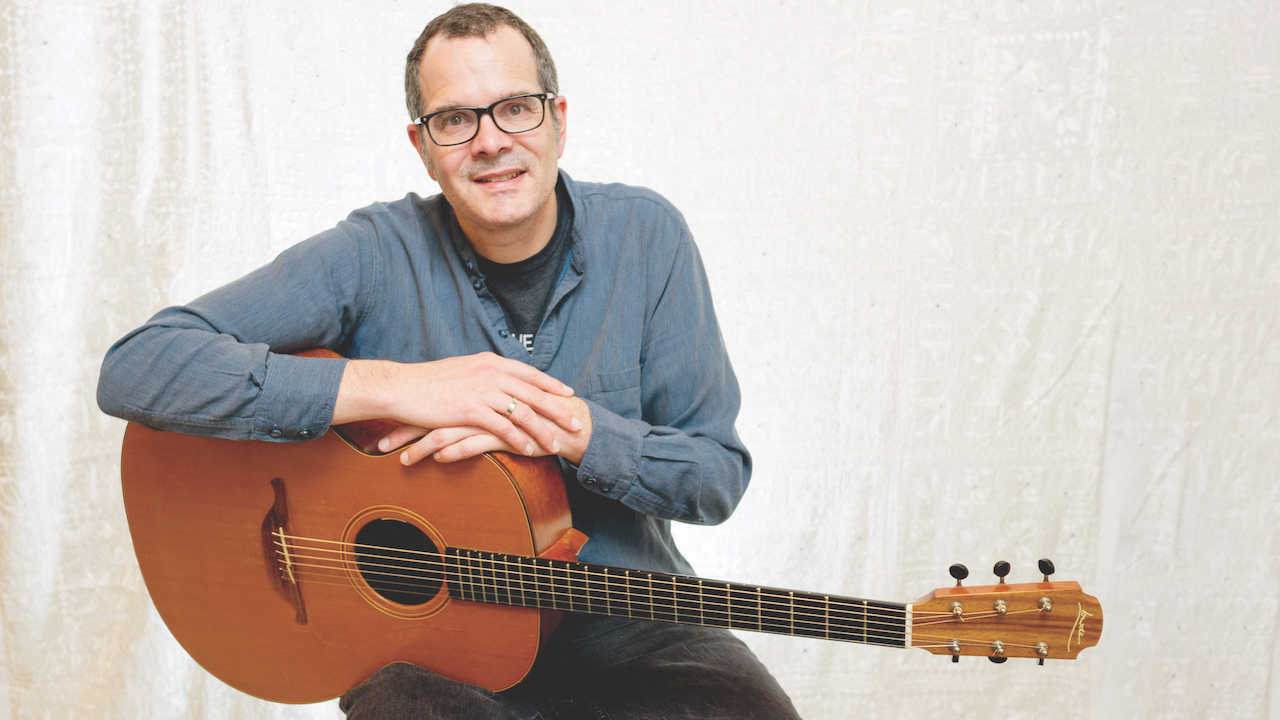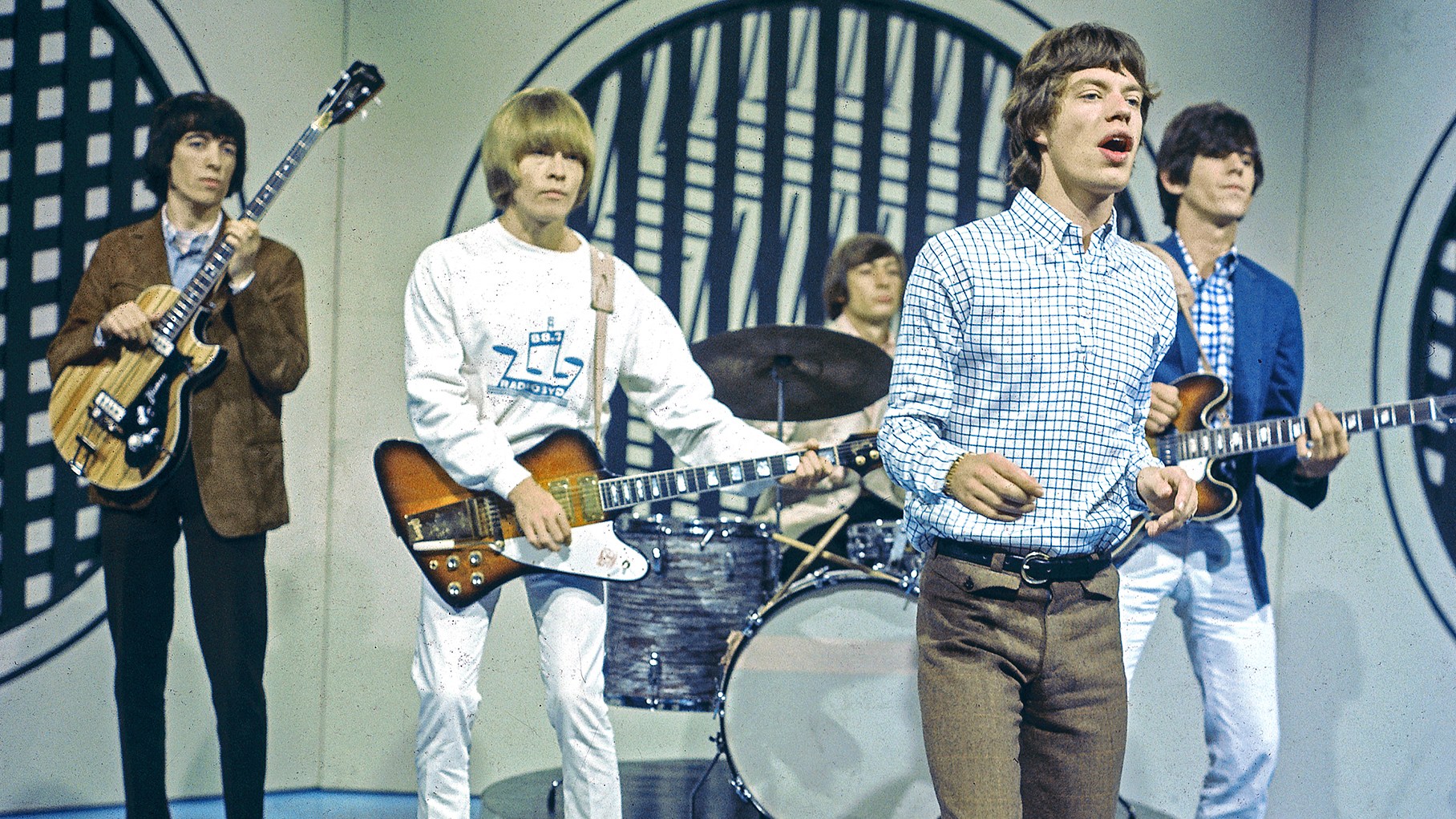“It’s such an incredible help to have the tunes come quicker once you’ve got the guitar ready”: why acoustic fingerstyle virtuoso Teja Gerken recommends playing air guitar
“And,” the acoustic ace tells GP, “there’s a side benefit from a health perspective”

All the latest guitar news, interviews, lessons, reviews, deals and more, direct to your inbox!
You are now subscribed
Your newsletter sign-up was successful
Teja Gerken is a veritable treasure trove of acoustic intel. In addition to being an accomplished player and artist, he’s a top educator and music journalist. Gerken has written for Guitar Player, Acoustic Guitar, and Premier Guitar and is a co-founder of Peghead Nation, an incredible online educational resource for acoustic enthusiasts.
Gerken often forms a duo with fellow fingerstylist Doug Young, but he’s primarily a solo artist and his latest effort, Test of Time, is a solo affair. Gerken learned a lot about timing during the creative process, and he was kind enough to share.
Timing is everything
“Timing is probably the weak spot for most fingerstyle players, including myself. With it, you have many more rhythmic intricacies compared to, for example, strumming the strings with a pick. Regardless of plucking style, timing can become very fluid if you’re playing solo acoustic. It doesn’t matter if you add a beat here or there, or play super rubato [with the rhythmic freedom to slow down and speed up as suits your performance].”
Test your time
“I learned a lot working out my own version of John Coltrane’s Naima, which I did in DADGAD on a 2000 Taylor 355 12-string. The third passage is basically an unaccompanied solo that gets far away from the chords and the melody. When I play it live, I have a sort of roadmap, but I play it a little differently each time. And it turns out that I wasn’t always hitting the exact structure of the chord progression, so before I recorded it I sat down and worked with a metronome to make sure I was following the chord structure and not adding or dropping a beat or a bar, which is so easy to do when you’re unaccompanied.
“I wound up working heavily with a metronome for this entire album, and not simply in a traditional sense by practicing the tunes on guitar. But that was my ultimate test before recording a track, and if I could not pass it to my satisfaction by playing through fluently in time, then it simply needed more work. I came to realize that can be done whether or not you have a guitar handy.”
Try practicing with no hands
“I started working with no guitar. I’m not a true singer, but I can sing enough to make a melody happen along with a metronome, so I would do that to better understand where it needs to go and what needs to happen when.
“I find it much easier to improve by working with just the metronome and voice. If your timing is off, it’s going to be just as off as when you have the guitar. The cool thing is that you can practice anywhere. I started doing it in the car along to the pace of the windshield wipers, and lying in bed at night when I couldn’t sleep. I’d get an imaginary metronome going in my head and concentrate on a melody along with it.”
All the latest guitar news, interviews, lessons, reviews, deals and more, direct to your inbox!
Time share benefits
“Along with my timing becoming vastly improved, I wound up with a far greater understanding of the tunes. And there’s a side benefit from a health perspective. Practicing without the guitar in hand saves your joints: You don’t create weird repetitive stress injuries by playing things over and over, often performing something the wrong way repeatedly. It’s such an incredible help to have the tunes come quicker once you’ve got the guitar ready, and you wind up spending more quality time on your instrument.”
- Teja Gerken's Test of Time can be streamed or purchased now.
Jimmy Leslie is the former editor of Gig magazine and has more than 20 years of experience writing stories and coordinating GP Presents events for Guitar Player including the past decade acting as Frets acoustic editor. He’s worked with myriad guitar greats spanning generations and styles including Carlos Santana, Jack White, Samantha Fish, Leo Kottke, Tommy Emmanuel, Kaki King and Julian Lage. Jimmy has a side hustle serving as soundtrack sensei at the cruising lifestyle publication Latitudes and Attitudes. See Leslie’s many Guitar Player- and Frets-related videos on his YouTube channel, dig his Allman Brothers tribute at allmondbrothers.com, and check out his acoustic/electric modern classic rock artistry at at spirithustler.com. Visit the hub of his many adventures at jimmyleslie.com


